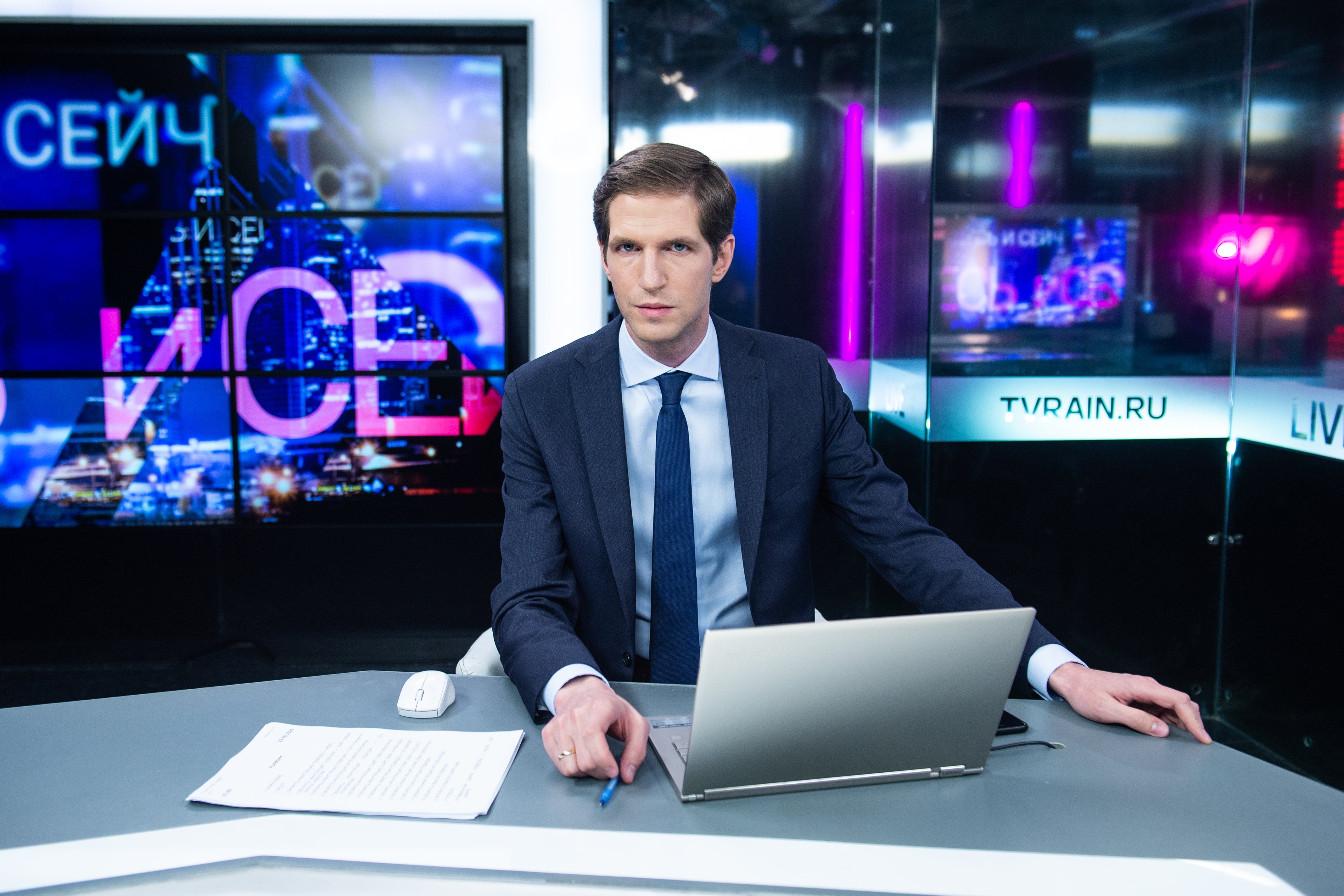‘They’re trying to stigmatise us like a rash’: Russian independent TV boss rails against Kremlin crackdown
The Kremlin has continued its attacks on the media by designating Russia’s only independent network a “foreign agent”. Its editor-in-chief Tikhon Dzyadko says the aim is to “muzzle any semblance of free thought”

Your support helps us to tell the story
From reproductive rights to climate change to Big Tech, The Independent is on the ground when the story is developing. Whether it's investigating the financials of Elon Musk's pro-Trump PAC or producing our latest documentary, 'The A Word', which shines a light on the American women fighting for reproductive rights, we know how important it is to parse out the facts from the messaging.
At such a critical moment in US history, we need reporters on the ground. Your donation allows us to keep sending journalists to speak to both sides of the story.
The Independent is trusted by Americans across the entire political spectrum. And unlike many other quality news outlets, we choose not to lock Americans out of our reporting and analysis with paywalls. We believe quality journalism should be available to everyone, paid for by those who can afford it.
Your support makes all the difference.For a man whose day job is to fill silences, Tikhon Dzyadko is struggling to find words to express what he’s feeling.
The editor-in-chief and anchor of Russia’s only independent TV channel has spent most of the last 24 hours agonising over what a new “foreign agent” designation means for him and his 160 staff. Only after a long pause, he says he’s “angry” and “bewildered” at the unfairness of the Kremlin’s ruling – but admits he could have expected nothing else.
“We knew the country we were living in,” he says. “But we had to push the prospect of an attack to the back of our minds. There was no way of working otherwise.”
Dzyadko’s channel, TV Rain, is the latest and most prominent victim of Russia’s targeting of its independent media using new laws apparently designed to hush critical outlets.
Formally, the expanded legislation requires designated “foreign agents” to file detailed reports and little else. But its real effect is to dissuade advertisers, partners and sources from collaboration. Some of those outlets included on the official register have already folded as a result. TV Rain, now number 35 on the list, denies receiving any funding from abroad.
“The ‘foreign agent’ label is all about creating stigma, like a rash on your face,” says Dzyadko. “We aren’t anyone’s agents, and work every hour in the interests of Russia alone.”
The very existence of TV Rain, which styles itself as an independent, “optimistic” channel, is something of a Russian miracle. The station began broadcasting in 2010, at a time when the Kremlin had already established vertical command over all national television networks. It survived thinly veiled attempts to shut it down four years later, when authorities pulled the channel from cable and satellite networks.
We aren’t anyone’s agents, and work every hour in the interests of Russia alone
From behind an online paywall, the channel teetered on the brink of collapse for years before unexpectedly returning to profit in 2020 with increased audience numbers.
Dzyadko says his team will need to draw on that unlikely survival story as they negotiate unknown territory in the weeks and months ahead. Not everything is immediately transferable, he says, but the experience of “regrouping and adapting” demonstrated that the channel could survive a “special operation” on its life.
“It told us we have a good foundation of support from our viewers,” he says. “It also told us to expect further attacks.”
Dzyadko says he does not know who is driving the Kremlin’s increasingly intolerant media policy. But it does feel like a “coherent plan from the top”, he says, and one that is “aimed at muzzling any semblance of free thought”. The crackdown also appeared to coincide with the unsuccessful August 2020 poisoning of opposition leader Alexei Navalny and his return to Russia five months later. September’s parliamentary elections add another driver, he says:
“From blocking websites to police visits at home, everything is now geared towards increasing costs and the nervousness of those who might stand out of line.”
Dzyadko, 34, is already a veteran of the Russian media business, having worked at TV Rain since its inception and as a presenter for Echo of Moscow radio. He had spells as a foreign correspondent for Russian and Ukrainian broadcasters in the United States. Born into a distinguished family of writers and activists, he is also closely associated with the now largely departing Soviet dissident movement.
The editor says talking to his parents’ generation revealed obvious parallels. “What they tell me is that actually, it’s much nastier now than it ever was in the late Soviet period,” he says.
While journalism under Vladimir Putin has always been difficult, independent reporters across Russia are increasingly facing the brunt of that nastiness. And many of them are admitting defeat, with scores even deciding to emigrate.
Dzyadko says this is not a possibility he entertains – either for himself or for the channel he has headed since 2019.
“As funny as it sounds, we continue to work according to every law of our lawless country,” he says. “Russia is our home. While we have the support of our audience, we have no desire to abandon anything.”



Join our commenting forum
Join thought-provoking conversations, follow other Independent readers and see their replies
Comments